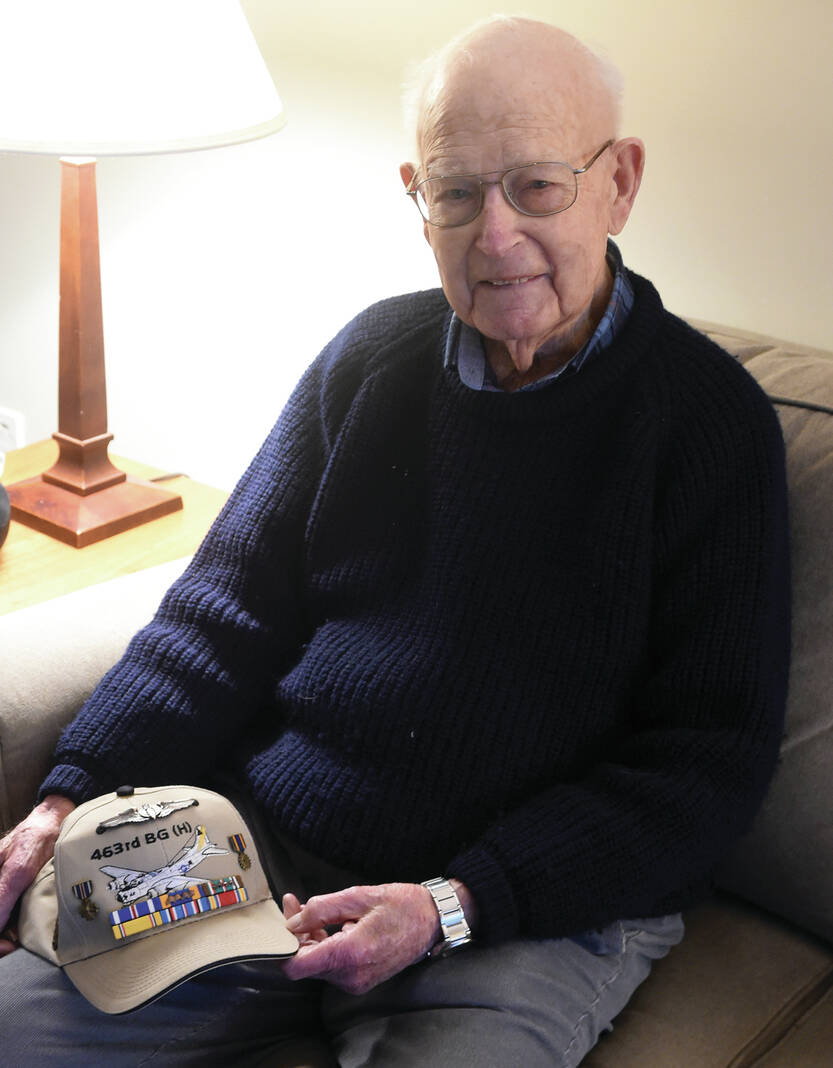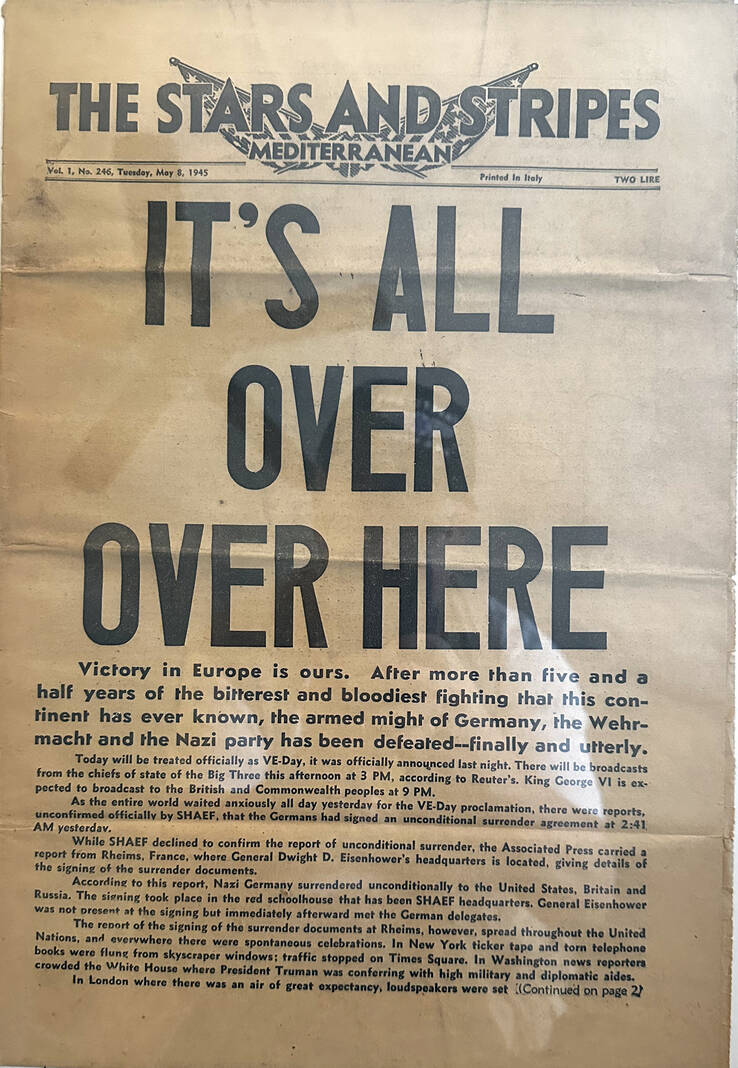
William “Bill” Rochelle Jr., of Schenectady, New York is celebrating his 100th birthday weekend at the home of his daughter, Lisa Hanke in Troy. Rochelle is a United States Army Air Corps veteran of World War ll, flying 31 combat missions as a bombardier in Boeing B-17 “Flying Fortress” aircraft.
Mike Ullery | For Miami Valley Today

Mike Ullery | For Miami Valley Today
By Mike Ullery
For Miami Valley Today
TROY — Life is often about milestones. For William “Bill” Rochelle Jr., of Schenectady, New York, one of his life milestones hangs in a frame in his daughter’s home. it is a copy of page one of the Tuesday, May 8, 1945, edition of “Stars and Stripes.” The popular newspaper announced on that day, “It’s all over, over there!” World War ll, in Europe had ended.
Rochelle is in Troy where he plans to celebrate another milestone, his 100th birthday on March 17. He is spending time with his daughter, Lisa Hanke.
Rochelle, like so many members of “The Greatest Generation” served his country during the war, taking to the skies in the venerable Boeing B-17 “Flying Fortress”. The centurion began college in September of 1942. With war on the horizon, 18-year-old Rochelle, along with three buddies, enrolled, and were accepted, as Aviation Cadets in November of that year.
Rochelle was commissioned as a second lieutenant in the United States Army Air Corps and chose to become a bombardier.
“I became a lead bombardier on a lead crew,” said Rochelle, “Out of 40 men who were there that day, one two were selected.”
One of Rochelle’s tasks was to learn to be an expert with the relatively new, and very Top Secret, Norden Bomb sight. According to Rochelle, “I believe that, until the atomic bomb, it was the most sophisticated piece of equipment that was developed for World War ll.” The veteran added, “It was as good as the man operating it.”
Rochelle was sent to the 15th Air Force and assigned as a lead bombardier in a B-17 group. Other units in the 15th AF flew B-24s. The 15th flew missions out of Foggia Airfield Complex in Italy.
Many of Rochelle’s memories involve the fighter support the bomb groups received. They were being escorted on missions by the Red-Tailed aircraft belong to the famed Tuskegee Airmen who sported distinctive red tails on their P-51 Mustang fighters.
The Tuskegee Airmen were a group of African-American pilots, often mistreated because of their race. Once in combat, they proved themselves to be aggressive and skilled pilots.
It is said that the Tuskegee Airmen never lost a bomber to enemy fighters while they were flying cover. That didn’t stop the Germans from trying to destroy our bombers. Rochelle said that on two occasions, the aircraft that he was in returned to base with more than 200 holes in the bomber, the result of German flack (anti-aircraft guns). he proudly added, “We never lost a crewman.” That statement attests largely to the construction of the B-17, which earned the nickname, Flying Fortress.
After returning from the war, Rochelle became a teacher, teaching Industrial Arts in New York, eventually retiring from education as assistant superintendent of his school system.
Rochelle was married to his wife, Shirley for 52 years before she passed away. The couple had three children, Lisa, a son, William lll, and Lori who passed away.
Rochelle is still active in attending squadron reunions and staying in touch with fellow veterans. “We just meshed together. I could meet a veteran right this minute and it would seem like I was with him forever,” said Rochelle.
The 100 year old veteran quickly added, “I would do it all over again.”


